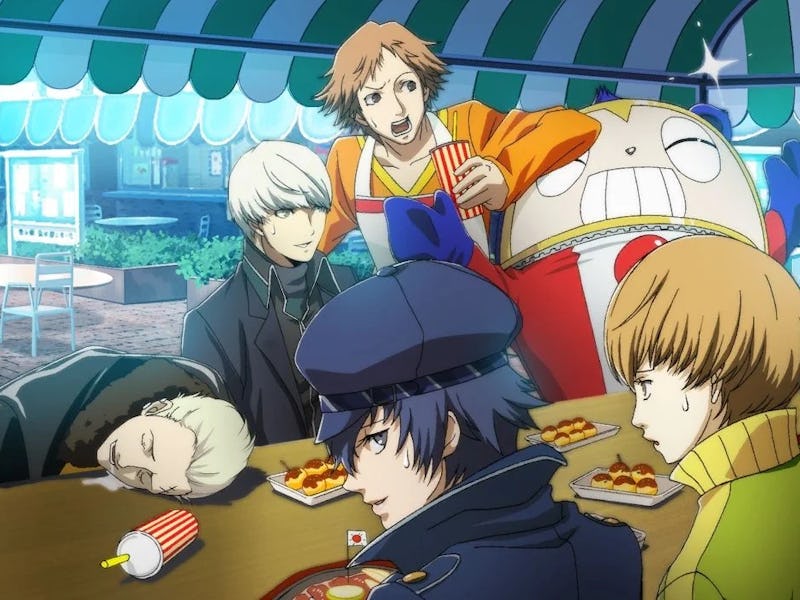You need to play the best high-school RPG ever made ASAP
We all have something going on.

Sometimes, your own worst enemy is looking back at you in the mirror. Persona 4 dramatizes these kinds of self-destructive metaphysical truths in spectacular fashion by gamifying one’s inner conflict. The high school-aged protagonist and his friends spend much of the adventure fighting their “Shadow” selves, which are the embodiments of their emotional insecurities. In other words, characters have to literally confront their inner demons. In doing so, they unlock their Persona, a powerful physical manifestation of their psyche that can be used in battle. What could be more relatable than that for an RPG set in high school?
The journey from Shadow to Persona is the core gameplay loop in Persona 4, but it’s wrapped up in a bigger story about a charming group of friends on a mission to solve a supernatural mystery in their small town. Victims are being thrown into a strange world inside a television and harassed by their Shadows. Radical acceptance is how they must save the day rather than overpowering evil monsters.
Most coming-of-age stories focus on teenagers struggling with their identity, but there’s something special about the emotional depth that Persona 4 explores. Most of its bosses are representations of your party members’ repressed feelings and insecurities. These aren’t just randos or monsters. They are real people. Your friends. Each fulfills a certain kind of archetype, but as Persona 4 peels back the layers of their fears, personality, and other quirks, things feel radically complex — and that much more human.
Yosuke Hanamura, the protagonist’s first party member, seems like your typical happy-go-lucky guy with a clumsy streak. It’s only when he and the protagonist dive back into the TV world that they meet his Shadow, who reveals that Yosuke resents living in boring rural Inaba. His cheery demeanor is just a mask that he puts on in fear of being alone. He recklessly leaped into the TV just because it was an exciting departure from the norm.
There’s a certain kind of theatrical brilliance to how a character relates to their Shadow.
Chie Satonaka’s Shadow self exposes her insecurities and the harsh truth that she keeps her friend Yukiko around because derives some measure of satisfaction by feeling needed. Meanwhile, Yukiko doesn’t want to take over her family business and wishes that a “prince” would come and save her from her fate.
Shadow Yosuke telling it like it is.
So many RPGs, even others featuring high schoolers, focus on cosmic stakes. And while Persona 4 obviously grapples with the supernatural, the conflict is both internal and external — or, to put it another way, it externalizes the very relatable internal conflict of its characters. It feels more personal than Persona 3 and Persona 5.
Each time the protagonist and the Investigation Team come to rescue a character that’s been thrown into the TV, they face these Shadows and the confused victim who refuses to accept them. However, the player is never made to feel like the Shadows are the true versions of the characters. After the boss fights, the character eventually accepts that the Shadow is simply a part of them but not the only thing that represents them. So, even if these (often) embarrassing caricatures are the truth, they realize that they are something worth accepting and overcoming to become stronger.
Everyone has a hidden side to them, even if they don’t want to admit it. Persona 4 encourages us to think about our “other selves” and, if we’re feeling particularly courageous, how to accept ourselves.
Persona Week is Inverse's love letter to the Atlus RPG series that blends deeply strategic dungeon-crawling with vivid and heartfelt social sim elements.